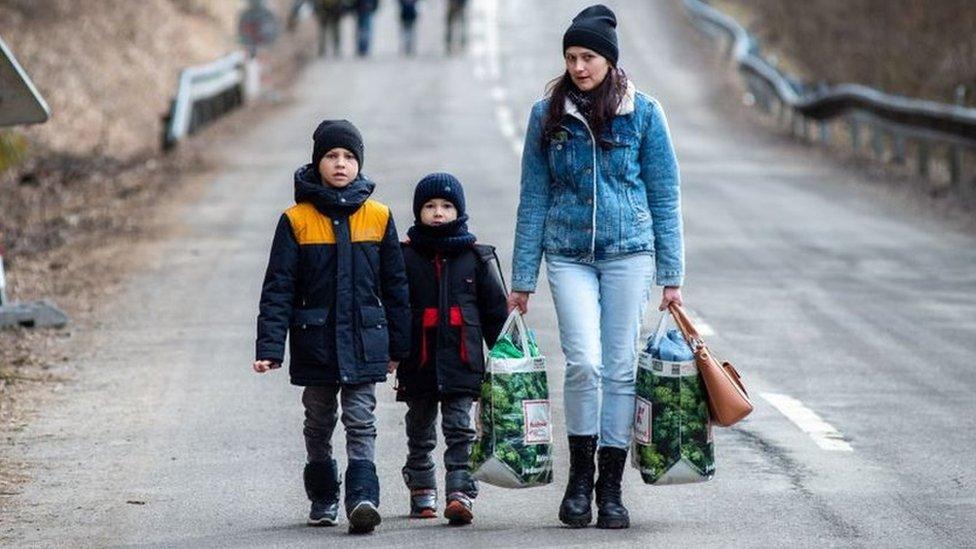Ukraine war: 'My kids cried every night asking if we're going to die'
- Published
Marta Burak is one of more than 220 Ukrainian refugees living at a Welsh government centre
It's having her children not crying every night and asking if they will be killed is why Kateryna Halenda knows it was the right call to flee Ukraine.
Leaving a country torn apart by war may seem like an easy decision but husband Oleh had to persuade her to leave with their two young children because she didn't want to leave him behind.
Kateryna now knows she and her kids are safe but still gets mobile phone alerts when air raids are happening back home.
Her worries remain, hoping Oleh is ok.
The 32-year-old teacher and her two sons Oleksander, nine, and four-year-old Artem are three of the more than five million refugees to have fled Ukraine while worried about the family they've left behind.
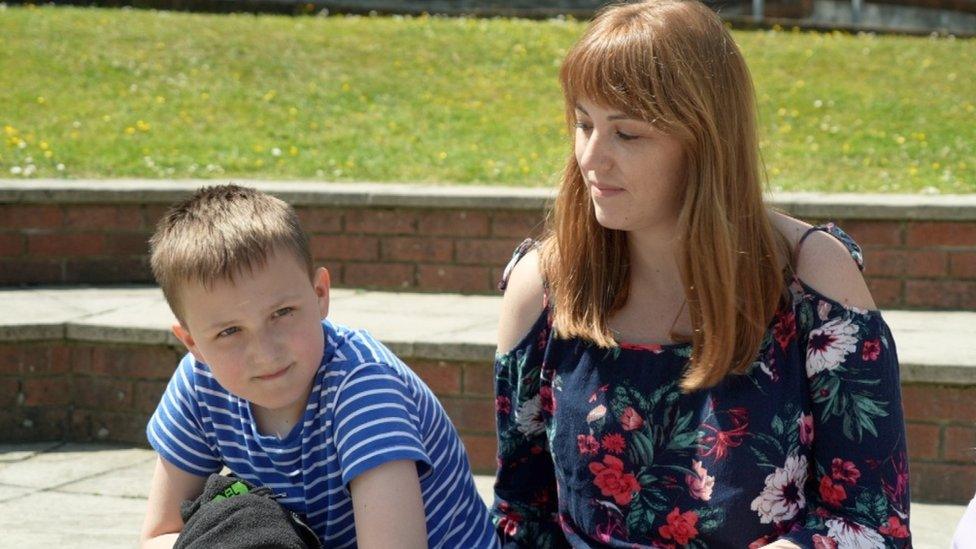
For many like Kateryna and her two boys, they lived in shelters or blacked out windows of their homes back in Ukraine due to the war
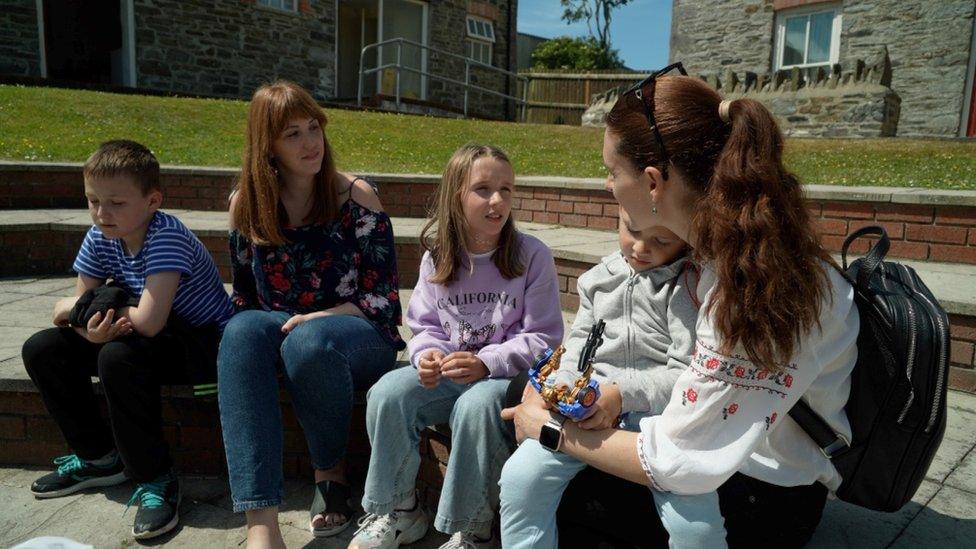
Ukrainian families who didn't know each other before arriving in Wales are supporting each other through their move to the UK
But unlike many of the 60,000 Ukrainian refugees that have arrived in the UK since Russia invaded Ukraine, Kateryna and her boys have not been taken in by kind families wanting to help.
Unique camp 'like a family'
They are one of 60 families who are in a unique Ukrainian community thousands of miles from their homeland in a specialist camp - offering a place to stay, food, education and advice - in the sanctuary of Wales.
"It's like a big family here. we're all looking out for each other," said Kateryna.
"We were amazed when we came here. It's very new but they're now completely happy, they're playing with other children every day and going to school every day. And they feel safe here - and that's important."
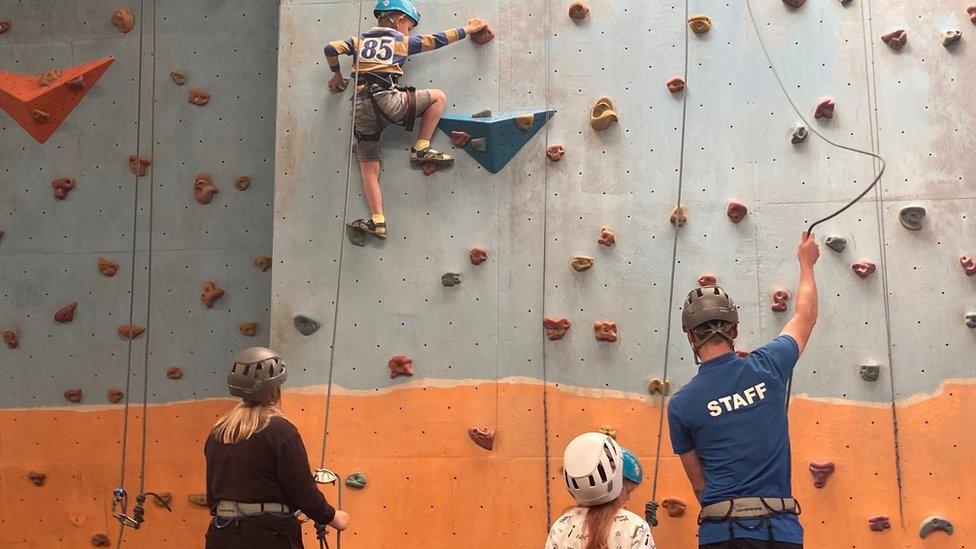
Parents who couldn't let their children outside for the fear of Russian bombing can now let their kids play in safety
Kateryna is one of 222 Ukrainian refugees at the camp run the the Welsh youth organisation Urdd Gobaith Cymru, external and supported by the Welsh government where more than 100 children displaced from home can now play and learn safely.
'My husband made me leave for the kids'
Yet while their parents and grandparents enjoy this haven from war, home and family is never far from their thoughts - and that explains why they didn't escape Ukraine sooner.
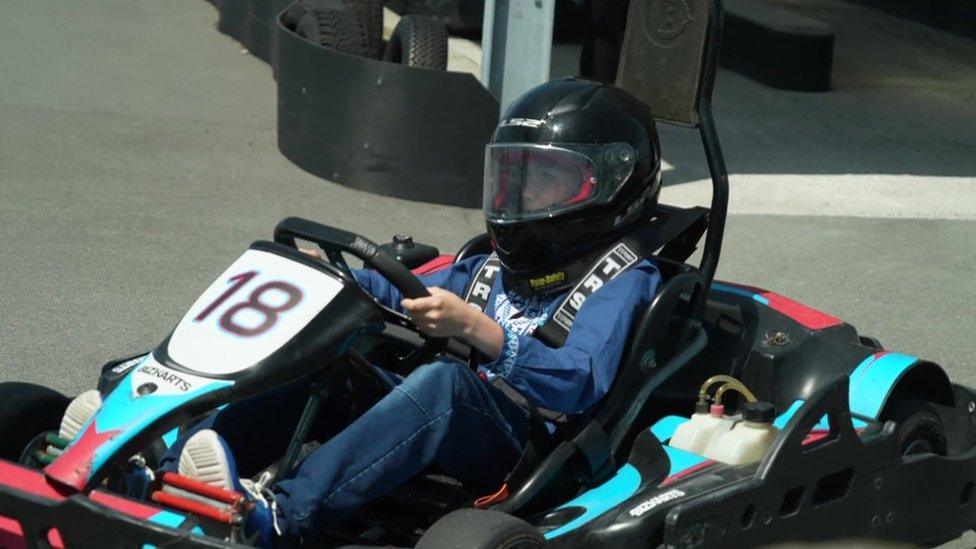
Children staying at the centre get opportunities to try out everything from go-karting to rope climbing.
"We waited for 100 days because we didn't want to leave at first but my husband made us go," said Kateryna.
"It wasn't safe. We were just so often in our basement because of those air raid sirens all of the time, including at night when I had to wake up my kids.
"But we decided to leave just to find a safe place for my kids."
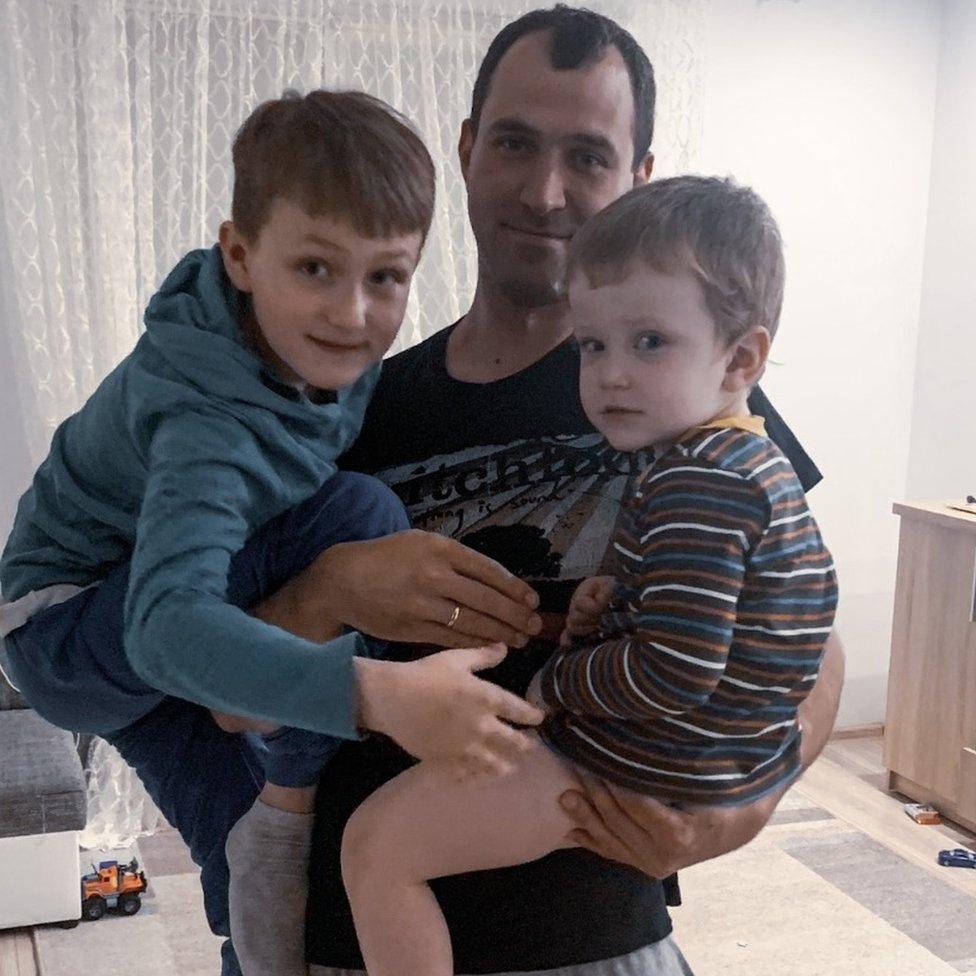
Four-year-old Artem and Oleksander, 9, miss their dad Oleh who has to remain in Ukraine
Kateryna didn't know Olena Andrshchuk before they arrived at the centre in Wales two weeks ago.
But now the mums have become friends and support each other with their husbands still back in Ukraine.
'There was bombing nearby the night we left'
Olena's husband Pavlo also made his wife leave their home in the capital Kyiv for the safety of her and their two children.
"It's still not safe," said the 36-year-old website content writer.
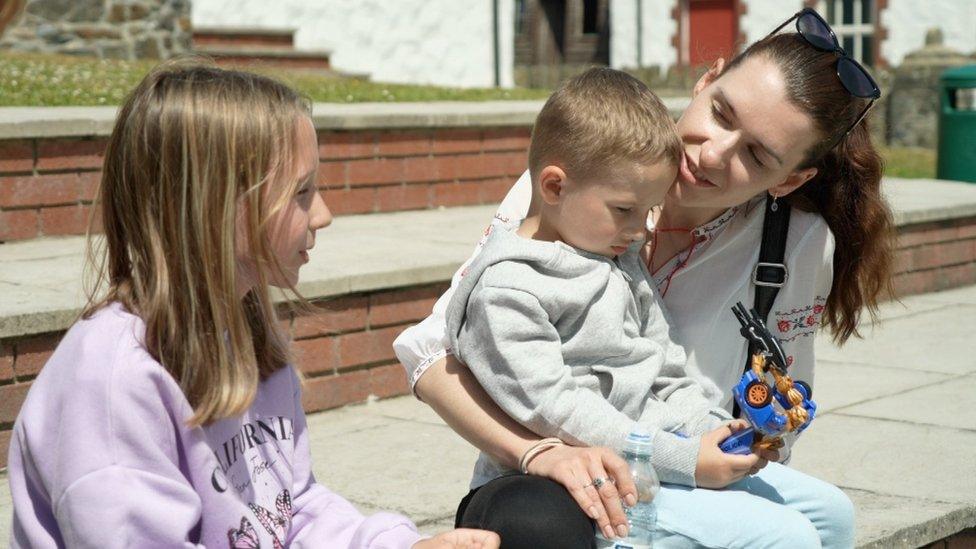
With a heavy heart, Olena left her husband behind in Ukraine to flee to Wales with their two children
"The very day we were leaving, very close to where we live I woke up in the middle of the night because of really big bombing.
"It still wasn't an easy decision to leave because I still had to leave my home town, my husband, everything I have - but I left for my kids."
Olena says she "loves" it in Wales and likens the centre to a "holiday resort" with lots of new friends with shared experiences - but the harsh reminders of what's happening at home aren't too far away.
"I have an app on my phone and I still get the alert for the sirens in Ukraine and they are quite frequent," said Kateryna, whose husband Oleh is a volunteer back in their home city of Ternopil in western Ukraine.
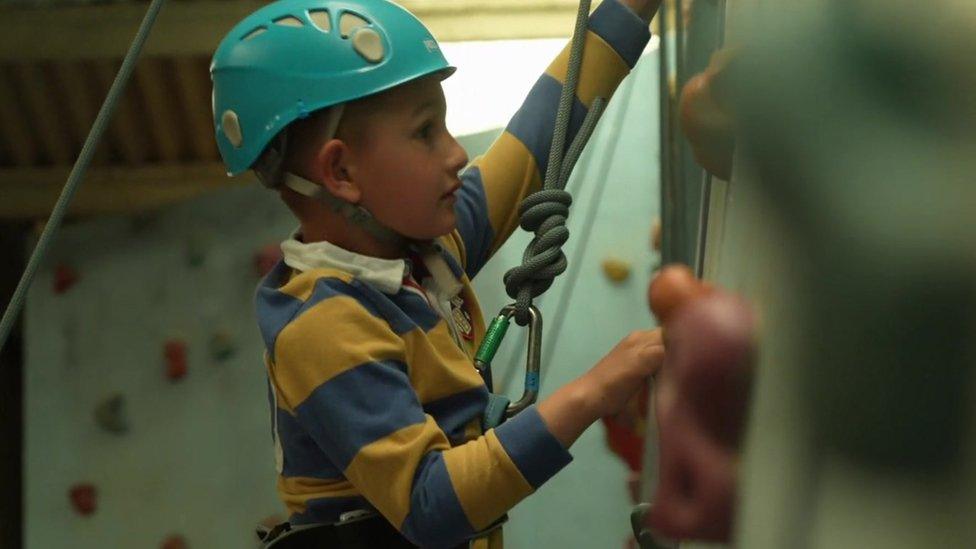
Activities and learning and now part of these Ukrainian children's day once again
"So I know when to call my husband to ask how he is."
Back to school
The Urdd centre normally hosts Welsh schools but its Ukrainian children who have been living, learning, and laughing in this small corner of the Welsh countryside for the last two months - enjoying the fact they're free to simply play and have fun safely again.
"My kids didn't attend school for up to three months because it wasn't safe," said Kateryna.
"But now they're happy as they go to school every day and feel safe."
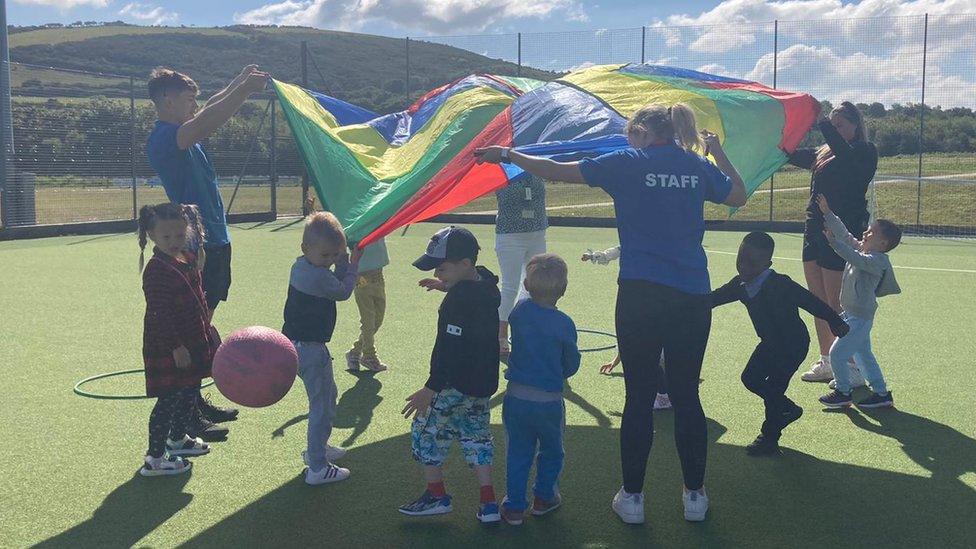
Children at the centre can play with kids of their own age safely free from the horrors of war
Olena agreed as her youngest Leonard, aged four, struggled with a lack of social interaction with children of his own age because most were kept inside because people were "too afraid" to let them play outside with air raid sirens bellowing all around.
"It was a big problem for my little one back in Ukraine," she said.
"Now we've come here, the kids can socialise, communicate with each other and they're open to all kinds of activities, which they were missing for so long so they just they're happy.
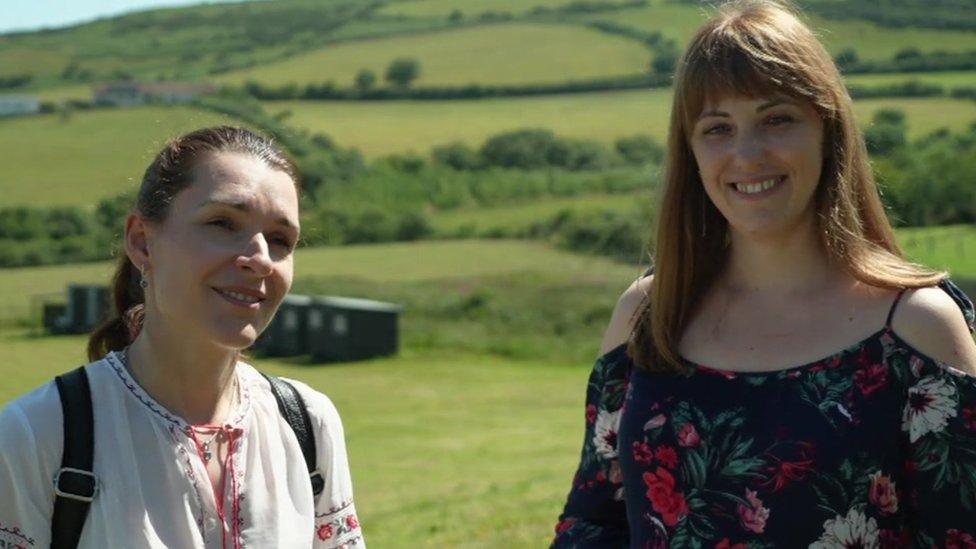
For mums like Olena and Kateryna, who've had to leave their husbands behind in Ukraine, they get support to help find work and access benefits and healthcare.
"Of course they are missing their father and grandparents but this is the better reality than what we had in Ukraine."
Refugees figure out what next
While the children enjoy there are daily lessons - in English and Welsh - and a world of activities, their parents can concentrate on finding work, accessing benefits and figuring out where they go next.
All of that expert help for refugee families is provided on-site in a one-stop shop that also offered health checks to everyone that arrived - much to the delight of grandmother Marta Burak.
"I was so happy because my grandson was tested for an illness here that we were not able to do back at home," said the 64-year-old retired teacher.
"Now he's on three months medication. That was very important for me."
While her daughter Khrystyna gets intensive English lessons provided by the local college, Marta, who is in her fifth week in the centre, is getting help and advice from on-site authorities to remain in the UK.
"While we are doing the necessary legal things to stay in the UK, we would love to stay here forever," she said. "But one day, we'll have to move on."
Yet Marta says "while half of her heart is in Wales, half is left in Ukraine".
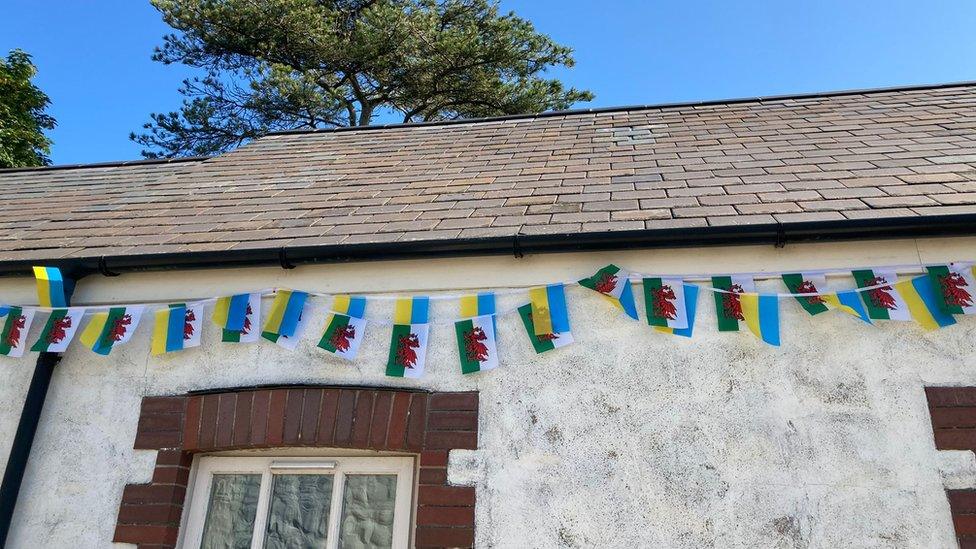
The Welsh Government Welcome Centre at the Urdd camp sees the blue and yellow Ukraine flag flying alongside the Welsh dragon
"My son, my daughter-in-law and my son-in law remain in Ukraine and my grandchildren miss their father every day.
"They cannot properly speak with him because they start crying but we are safe here, that is the most important thing.
"Yesterday I got such sad news because the only son of my friend's family got killed and he was only 30. He was such a handsome, positive young man and it is sad young people are still dying in this war and this must be stopped."
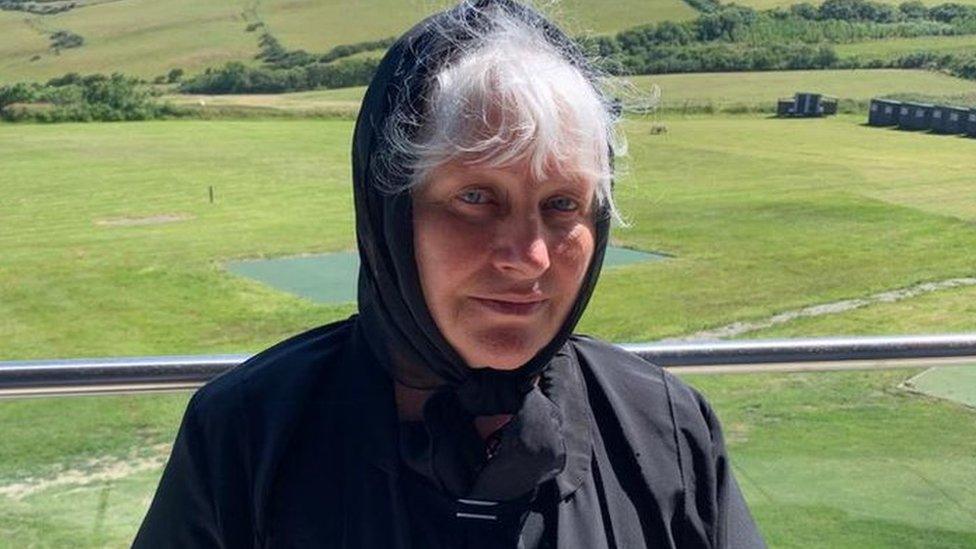
Marta loves her new life in Wales but she is worried about her family back in war-torn Ukraine
Home is never far people's thoughts but the support of locals draping Ukrainian flags in their windows gives the refugees hope.
And in the camp car park there are a handful of cars with Ukrainian registration plates while one family had to drive through Russia in order to avoid fighting on the frontline before eventually finding their way to Wales.
People in Wales have so far raised millions of pounds for the Ukraine humanitarian fund, external and Wales has housed more than 2,500 refugees, external,
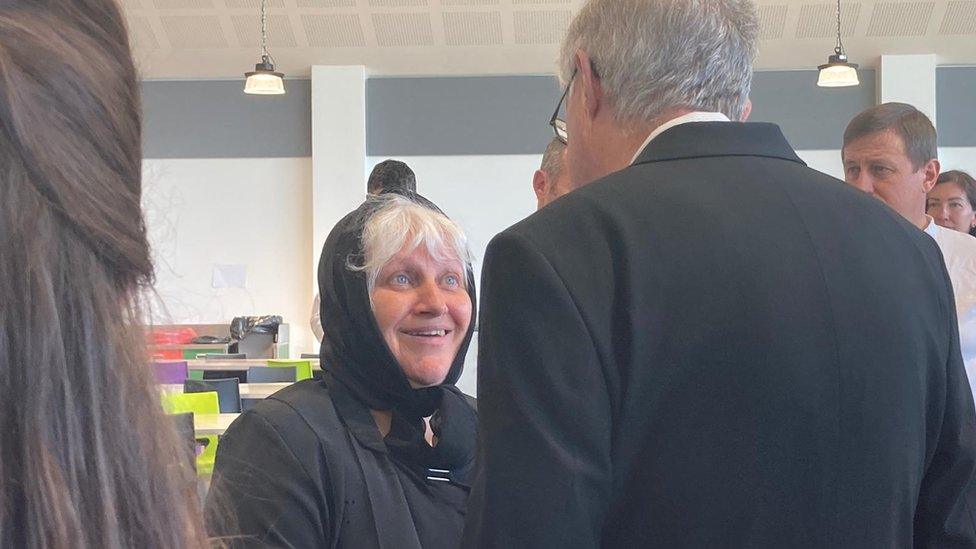
Marta met Wales' First Minister Mark Drakeford on a his visit to meet the refugees and see their camp
The Welsh government has directly sponsored nearly 3,000 people to come to Wales and most are yet to arrive but the scheme has been paused to allow people to move on from their 'welcome centres'.
Mark Drakeford wants Wales to be a "nation of sanctuary" and to help Ukrainian refugees "re-establish their lives".
But Wales' first minister acknowledged the "challenge for the coming weeks" is to help more people leave the centre and into more permanent placements so more refugees can be housed and helped.
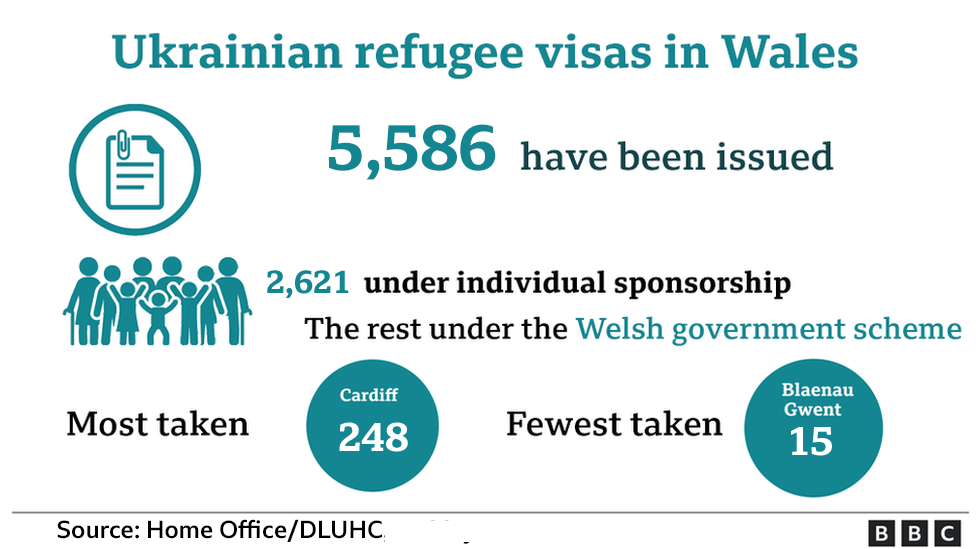
"Our focus has been on the arrival of people but now we have 4,000 people wanting to come to Wales when we originally expected 1,000," he said on a visit to the camp.
"We've got to focus on people moving on from our centres so there are long-term prospects for people who are here temporarily."
- Published22 June 2022
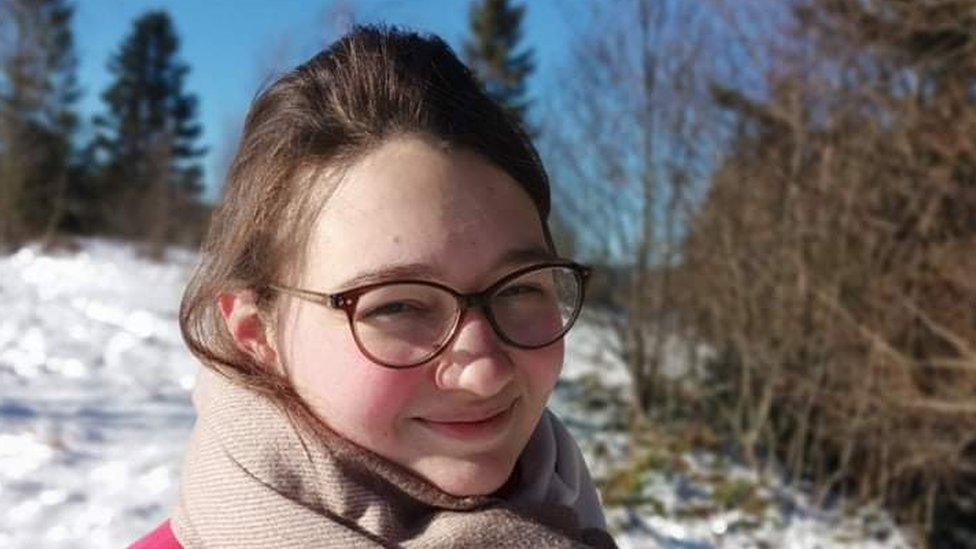
- Published8 June 2022
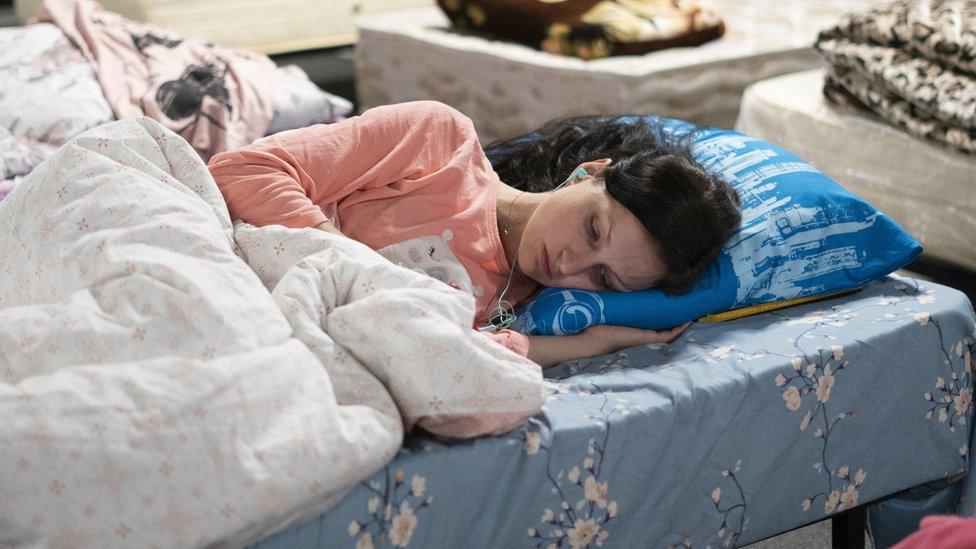
- Published28 May 2022
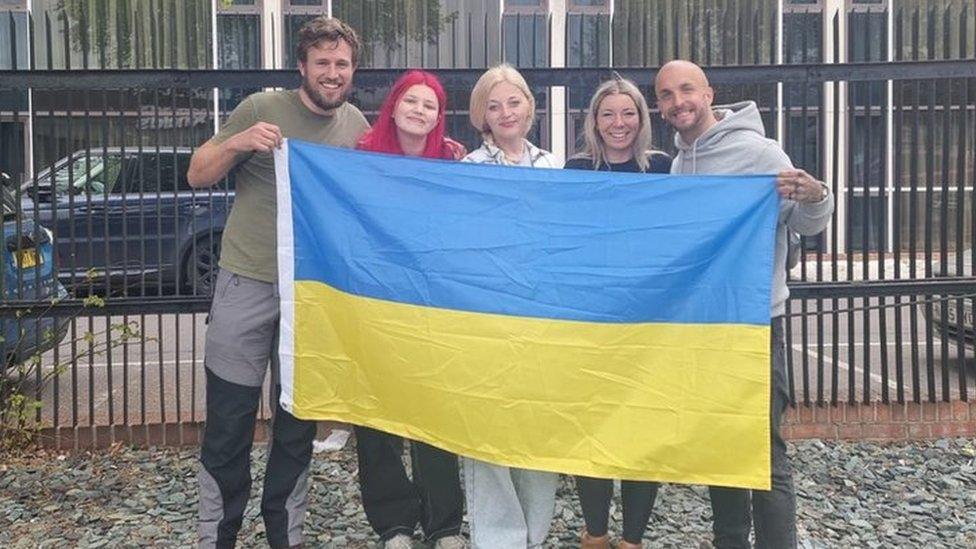
- Published10 May 2022
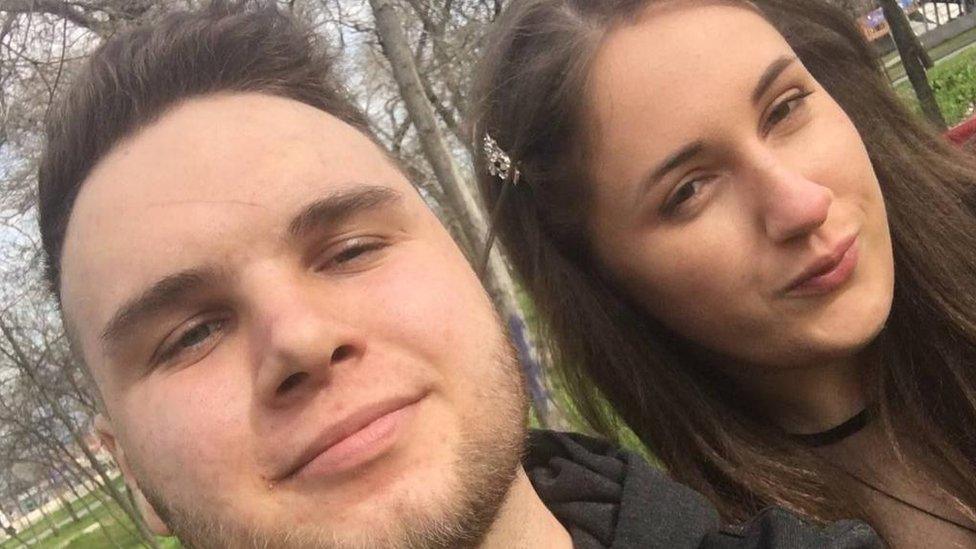
- Published2 May 2022
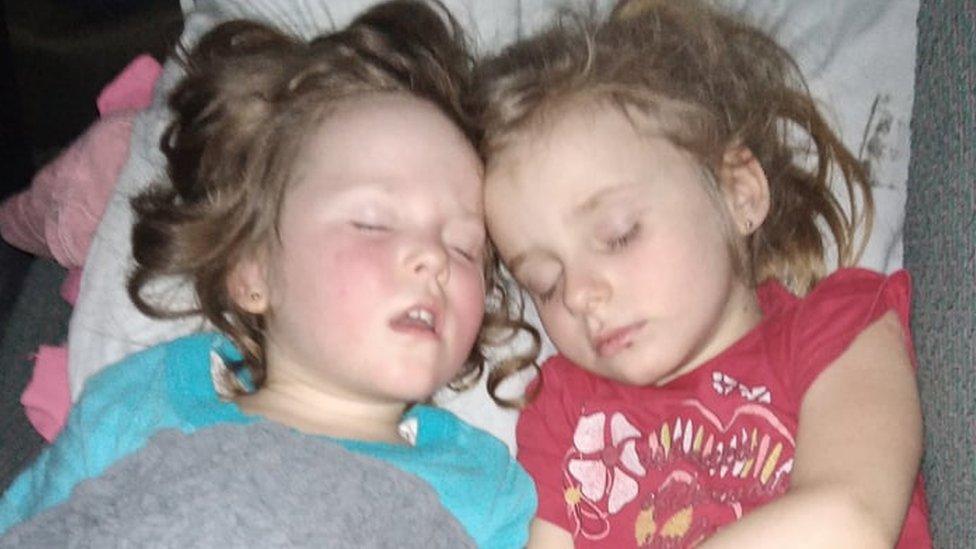
- Published5 May 2022
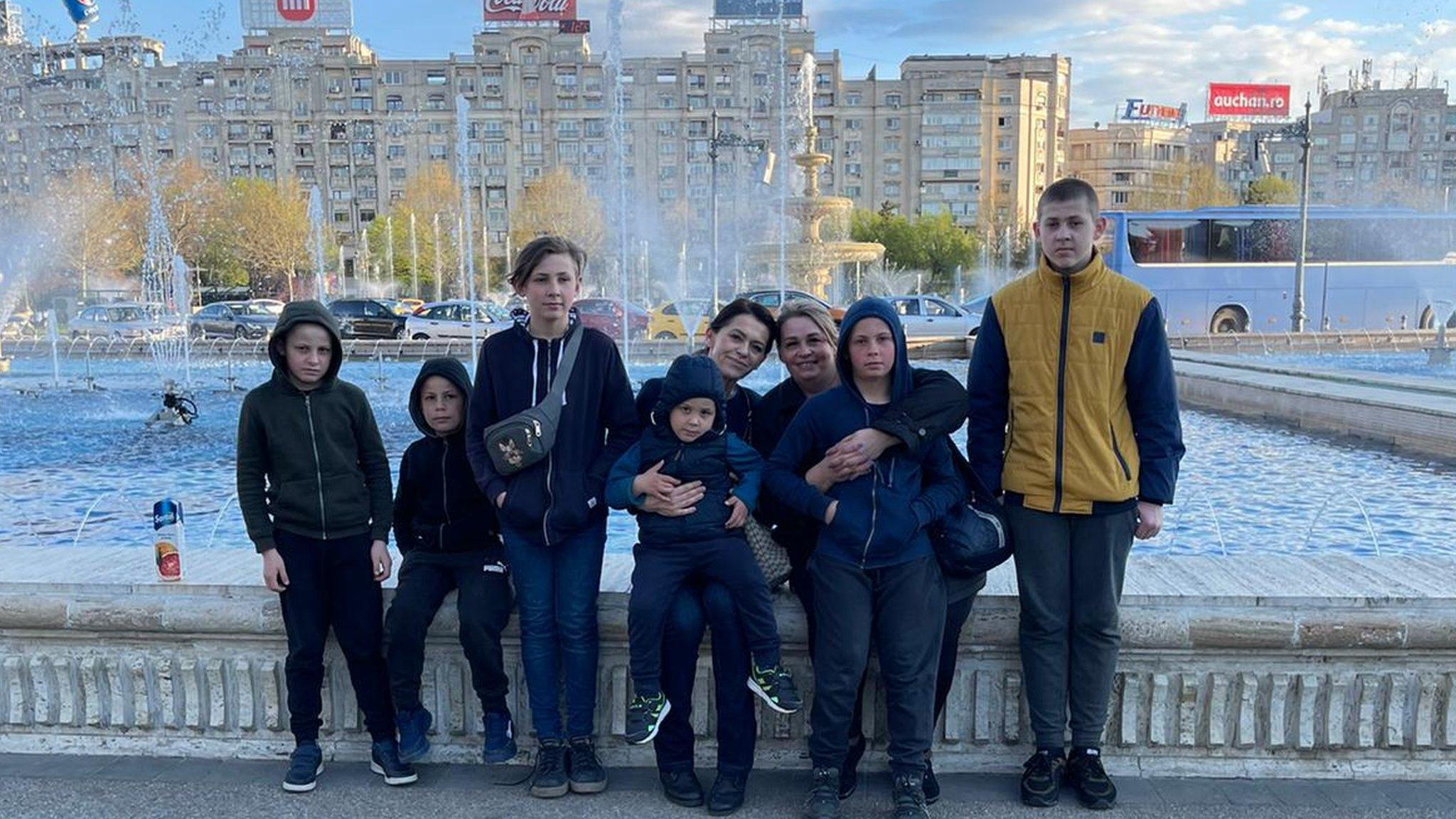
- Published21 April 2022
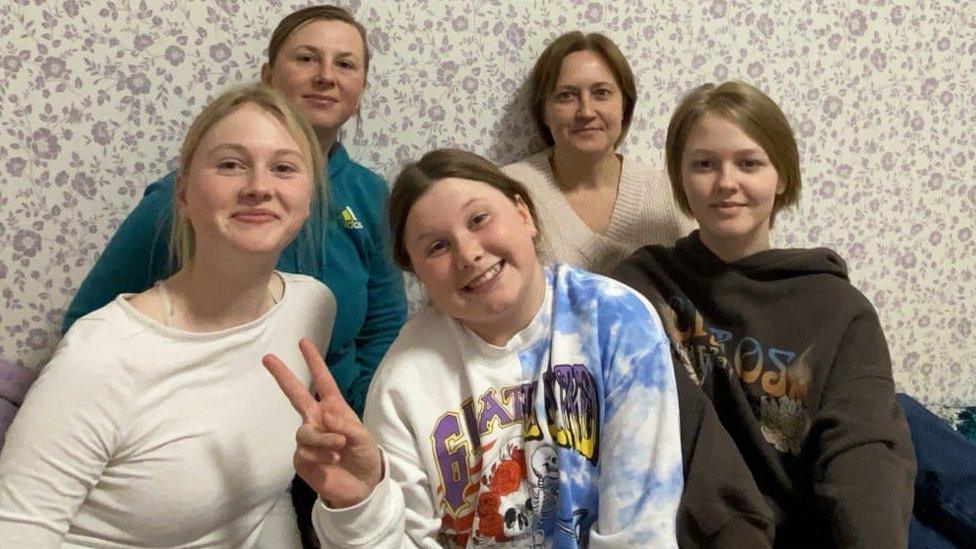
- Published21 March 2022
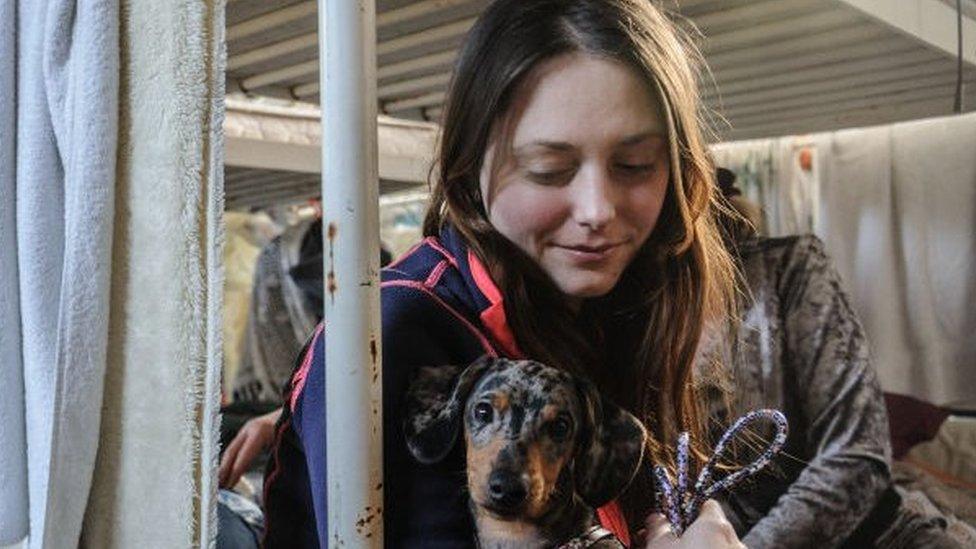
- Published18 March 2022
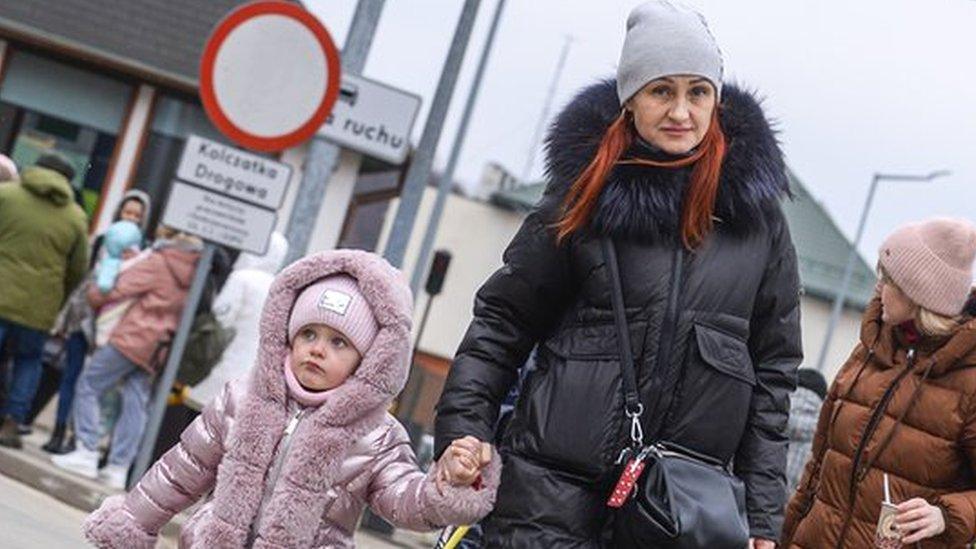
- Published11 March 2022
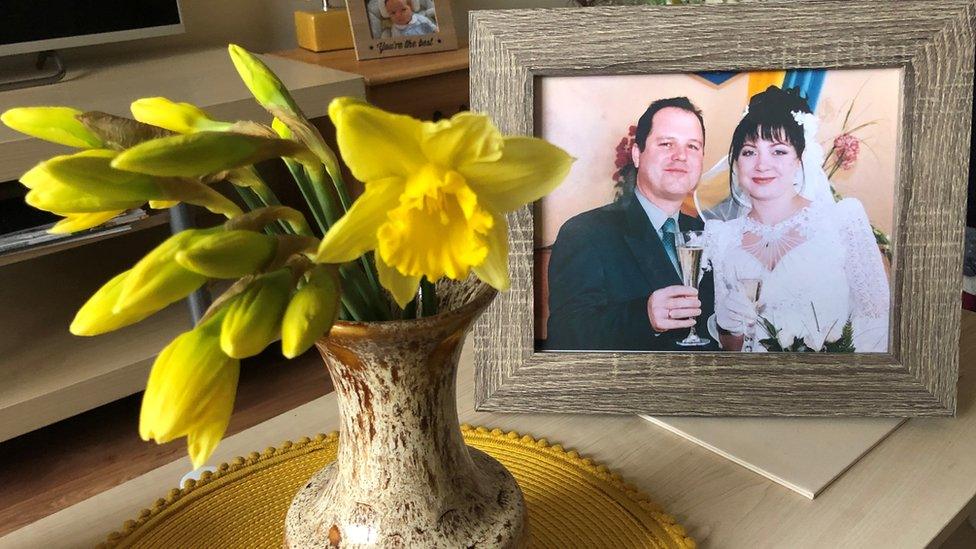
- Published25 February 2022
